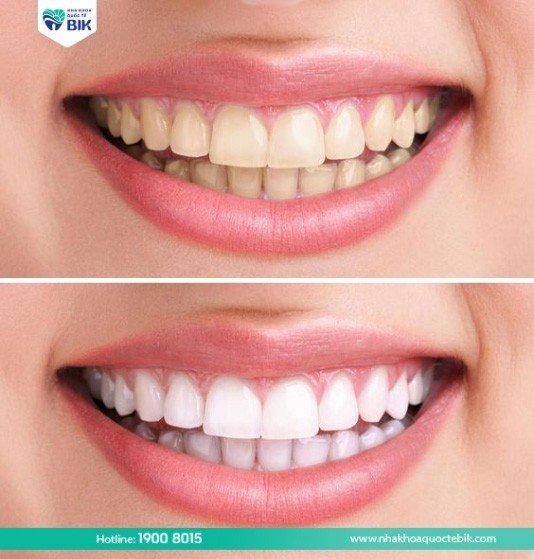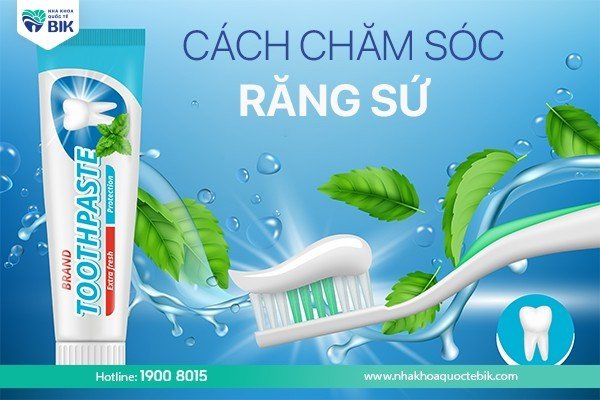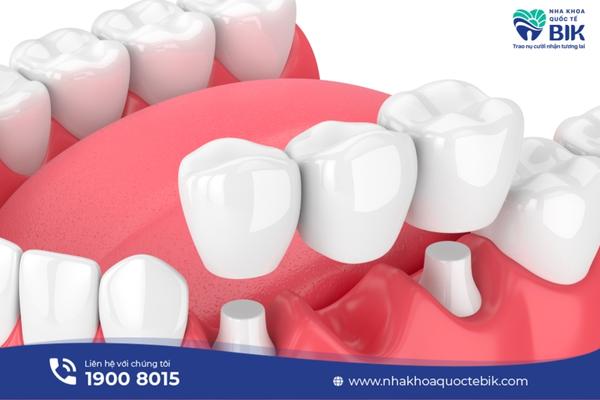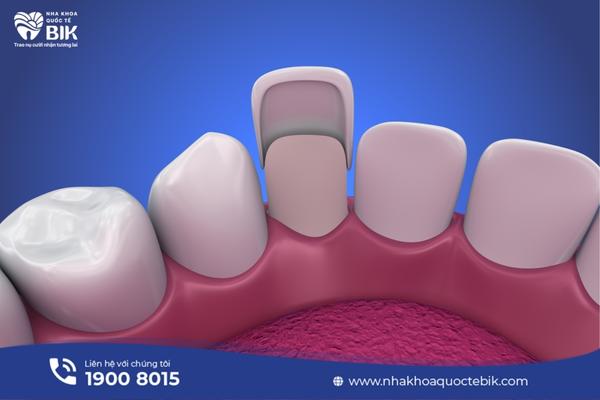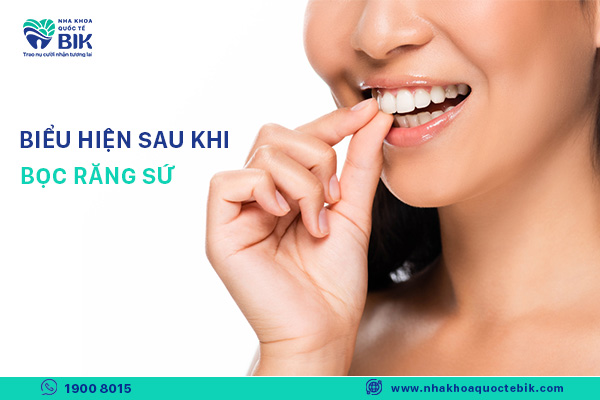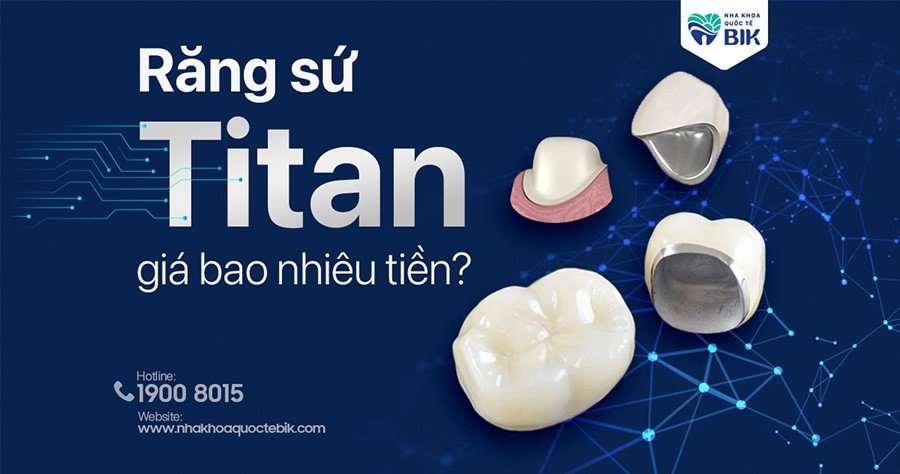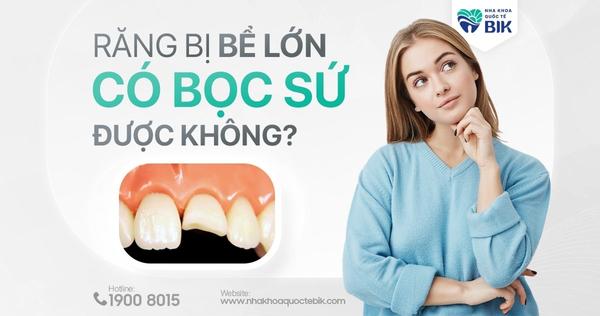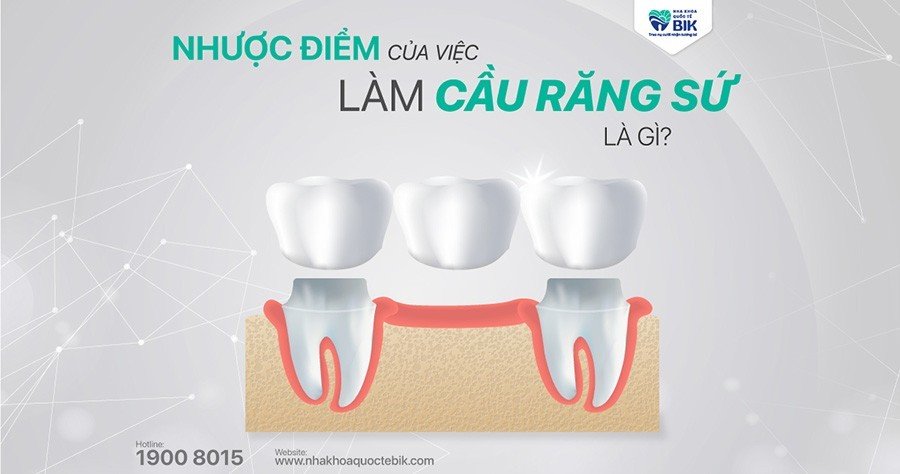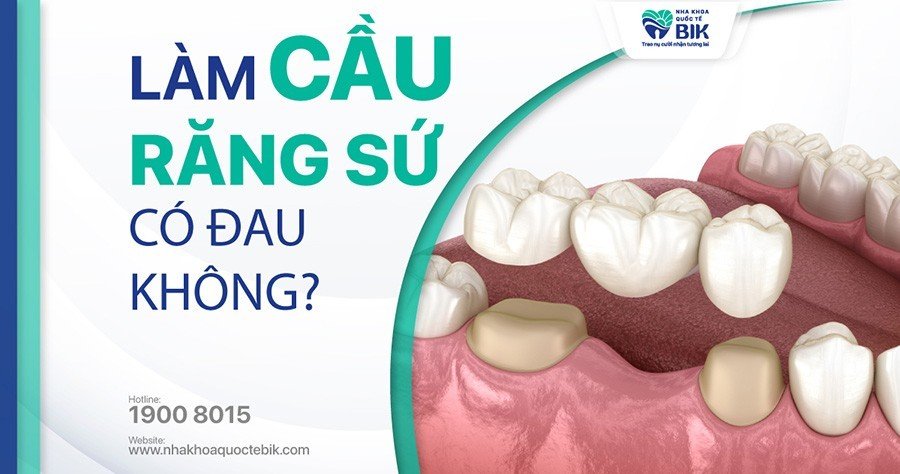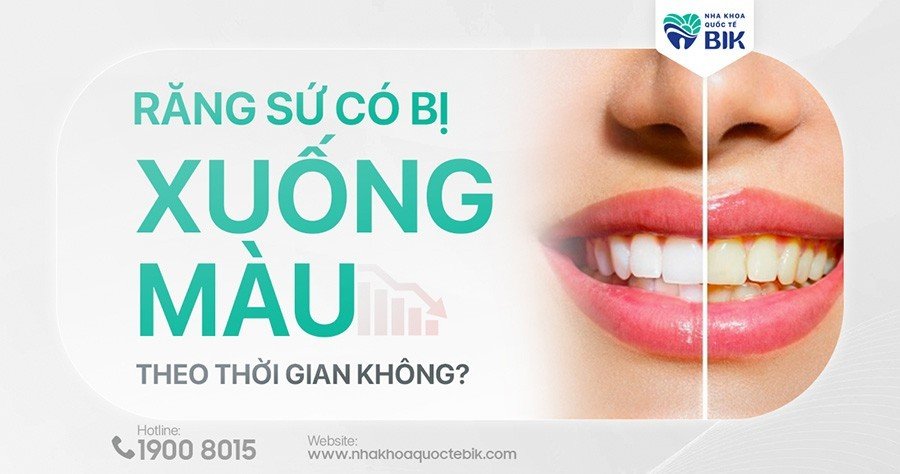
The cosmetic restoration of chipped, cracked, yellowed teeth,… by porcelain crowns is very popular today. Bringing bright, even teeth after just a few days, many people wonder if porcelain teeth will discolor? Let’s find out with BIK International Dental Clinic in the article below!
1. Do porcelain teeth discolor?
The reason why real teeth become discolored and yellow is because the enamel surface has many tiny holes that make it easy for food color to stick and discolor the teeth. But the surface of porcelain teeth is smooth and completely sealed, even covered with a layer of high-tech anti-staining and anti-bacterial enamel.
Therefore, in theory, porcelain teeth will not be able to discolor over time. However, in reality, many customers have encountered cases where porcelain teeth change color after a period of use, even becoming less aesthetically pleasing than real teeth.
2. Causes of discolored and yellowed porcelain teeth
During use, the discoloration of porcelain teeth can be due to the following reasons:
2.1. Due to the type of porcelain teeth
Porcelain teeth that have lost color after a period of use can be due to poor quality porcelain crown materials. Using these types of porcelain teeth can easily cause the color of the porcelain teeth to deteriorate after restoration because the durability and precision are not guaranteed. In addition, poor quality porcelain teeth also increase the risk of breakage during normal chewing.
Therefore, customers should choose to have porcelain crowns at reputable, quality dental facilities, using genuine materials and having a clear warranty card.
2.2. Due to porcelain teeth care
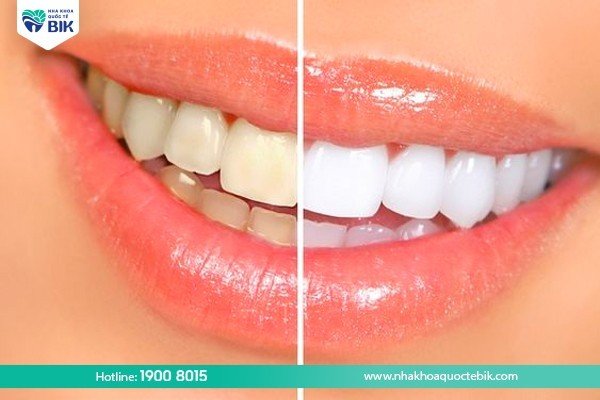
Theoretically, porcelain teeth may not be stained by food because the surface enamel layer is crafted very smooth and soft. However, if not well cared for during use, the outer enamel layer can still be eroded. At this time, tiny grooves and holes will begin to appear like real teeth, which will gradually discolor over time.
2.3. Due to exposed glue on porcelain teeth
Porcelain teeth will be tightly attached to the gums and real tooth stumps with a specialized adhesive. Over time, the gums can recede due to the natural aging process, at which point the glue layer can fall out. Therefore, there are cases where the porcelain teeth still have perfect whiteness, but the glue is exposed, making it easy for food coloring to stick and cause yellowing.
2.4. Due to trauma
No one can foresee unexpected traumatic accidents in daily life. When there is trauma or strong impact, the real tooth stump inside can be impacted, leading to bleeding. At this time, blood can be seen from the outside through the denture.
2.5. Due to long-term use
Conventional porcelain teeth also have a fairly long lifespan, but in reality, how long they can be used depends a lot on oral care regimen as well as daily habits. In particular, regular smoking greatly affects the lifespan of porcelain teeth. Because nicotine will cause yellowing and make teeth no longer as white as before after a short time.
3. What to do if porcelain teeth are discolored?
According to experts, teeth whitening cannot be applied to cases of discolored porcelain teeth, so the following is the most effective way to improve the above condition:
3.1. Pay attention to oral hygiene
Brush your teeth with a soft-bristled toothbrush at least 3 times a day, especially after each meal.
Use a soft-bristled toothbrush with just enough force to avoid damaging the gums.
Combining dental floss and mouthwash helps remove food particles deep in the teeth, or in the innermost teeth to ensure a clean mouth.
3.2. Replace new porcelain teeth
Oral hygiene is only a measure to help prolong the time when porcelain teeth become more discolored. However, for severely damaged porcelain teeth, exposed glue causing tooth discoloration, the only solution is to replace new porcelain teeth. This is the only and most effective way to help customers quickly regain bright white teeth.
4. How to care for porcelain teeth without discoloration
To keep porcelain teeth bright white for as long as possible, customers should note the following:
4.1. Proper dental care
Brush your teeth with a soft-bristled toothbrush that fits your mouth and use just enough force to avoid scratching your porcelain teeth.
Do not use highly abrasive toothpaste or toothpaste that is specifically designed to whiten teeth. These products will corrode the smooth outer layer of the porcelain tooth, making it easy to stain and yellow.
Mouthwashes containing alcohol can soften and loosen the glue that holds the porcelain crown. From there, bacteria can easily penetrate the tooth, causing damage and discoloration.
Re-examination every 4-6 months for the doctor to check the condition of the porcelain tooth.
4.2. Limit certain foods
Diet also affects the color of porcelain teeth quite a lot. Accordingly, to ensure that porcelain teeth do not discolor, customers should limit some chewy, chewy and colored foods such as chocolate, gummy candies, etc. In addition, carbonated drinks and dark colors can also cause porcelain teeth to discolor.
So whether porcelain teeth discolor or not depends a lot on each person’s oral hygiene and care regimen. To ensure that the porcelain teeth used are genuine and of high quality, customers should choose to have porcelain teeth done at reputable dental facilities with clear operating licenses.

